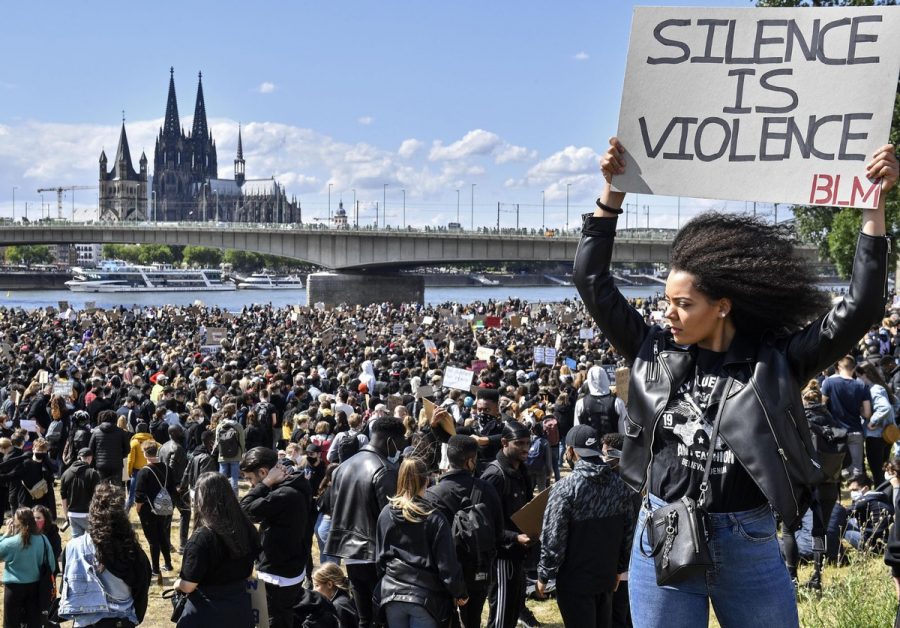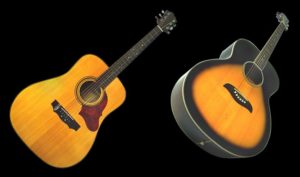Social Media Influence on the Black Lives Matter
(Image via The Atlantic, Photo Credit to Martin Meissner, AP)
October 18, 2020
Social media has been one of the biggest influences on the Black Lives Matter movement, whether it’s used as a tool to educate and organize, a way for younger generations to be involved, or even possibly a hinder to belittle the movement into simply a “trend”
The Black Lives Matter movement originated in 2013 when Alicia Garza, a labor organizer, used the phrase in a Facebook post after George Zimmerman was acquitted of shooting and killing Trayvon Martin. Since then, the phrase and hashtag have gained intense popularity, the movement skyrocketed after the video of George Floyd, a black man being kneeled to death by a police officer, was released. In the 30 days after the video appeared on twitter, his name had been mentioned over 80 million times. Soon after, BLM (Black Lives Matter) was gaining recognition on Instagram, on June 2nd, Instagram users flooded everyone’s feed with black squares in support of black victims of police brutality with the hashtag BlackOutTuesday. The movement has grown far larger than hashtags and black screens, protests began on June 6 where 50,000 people turned out in Philadelphia, 20,000 in Chicago’s Union Park, and up to 10,000 on the Golden Gate Bridge, people held signs pleading for police accountability, pleading for basic human rights. “If we continue to give people tangible things, it funnels them into the work beyond the initial social media engagement,” said the Cal State Los Angeles professor of Pan-African studies to Mashable.com
As support for the Black Lives Matter movement grew on all social media platforms, so did misconceptions about the movement, Some people felt omitted, asking “What about me? Does my life matter?” Some people saw the phrase “Black Lives Matter.” As “Black Lives Matter More”. This confusion sprang a new popular phrase, soon under Black Lives Matter posts, you’d see occasional comments of “All Lives Matter.” This phrase seems ridiculous, of course, all lives matter, What the black lives matter movement is trying to prove is “black lives matter, too” “black lives matter just as much.” The Black Lives Matter movement demands that the country affirm the value of black life in practical and realistic ways, including addressing an increasing racial wealth gap, fixing public schools that are failing, combating issues of housing inequality and gentrification that continue to push people of color out of communities they have lived in for generations. None of this is saying “Their lives matter more.” It is asking for the bare minimum.
Another phrase commonly used under Black Lives Matter posts was “Blue Lives Matter” (No, people weren’t referring to smurfs). This phrase came from yet another misinterpretation of the movement. This misinterpretation is that the movement hates police officers and wants to disarm law enforcement, once again, this seems almost ridiculous. Although it’s understandable how this misconception occurred, an expression often associated with Black Lives Matter is ACAB (All Cops Are Bastards) You may be confused because ACAB is outright saying cops are bad, but the real meaning is the system of police is built on racism. The police force originated to catch slaves, and although now under law everyone has equal rights, the illicit bias of black men and women being criminals goes far beyond the law.
Any large movement can be shaped by the technology available to it, it’s possible that the movement would not have gained as much popularity without social media, although, as the movement has realized, there are downsides to the media environment that today’s activists have adapted to. Despite its success in making videos of police violence go viral, social media itself has become another arena where black people are abused.










































































































































